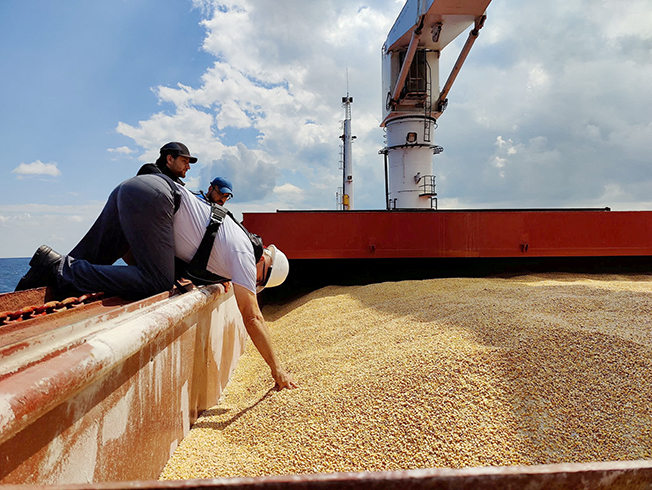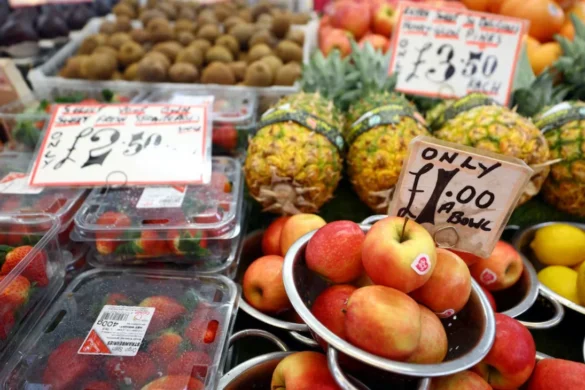France’s transport minister said on Sunday he would sign an agreement with Romania to help increase Ukrainian grain exports to developing countries including to the Mediterranean.
Ukraine’s grain exports have slumped since the start of the war because its Black Sea ports, a key route for shipments, were closed off, driving up global food prices and prompting fears of shortages in Africa and the Middle East.
Romania, the EU’s second-largest exporter of wheat to non-EU countries, including Egypt, after France and the largest in maize (corn), has been one of the alternative routes used to export Ukrainian grain.
“Tomorrow, I will sign an accord with Romania that will allow Ukraine to get even more grains out … towards Europe and developing countries, notably in the Mediterranean (countries)which need it for food,” Clement Beaune told France Inter radio, adding that the deal covered exports by land, sea and river.
According to a draft agreement of the French-Romanian deal, seen by Reuters, Paris would cooperate in developing a project aimed at increasing efficiency at the port of Galati, equipping border points in northern Romania, maximising the use of grain containers stationed in the port of Constanța as well as increasing the capacity there and in the Sulina canal.
It would also help to build a medium-term strategy on the axes of the corridor between Romania and Ukraine and provide pilings to optimise ship traffic. France will also provide funding for the initial technical expertise and work with Bucharest to identify financing for the future.
Without citing a source, Russian President Vladimir Putin said on Sept. 7, that only two of 87 ships, carrying 60,000 tonnes of exported grain products as part of an international deal brokered by the United Nations, had gone to poor countries.
The accord to allow grain exports from Ukrainian Black Sea ports took effect in August. Beaune dismissed Putin’s assertion.
Quoting U.N. figures, the British Defence Ministry also refuted the claim and said that around 30% of grains exported under the deal has been supplied to low and middle-income countries in Africa, the Middle East and Asia.
Ukraine has said it aims to use road, river and rail connections to increase its monthly grain exports.




